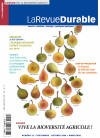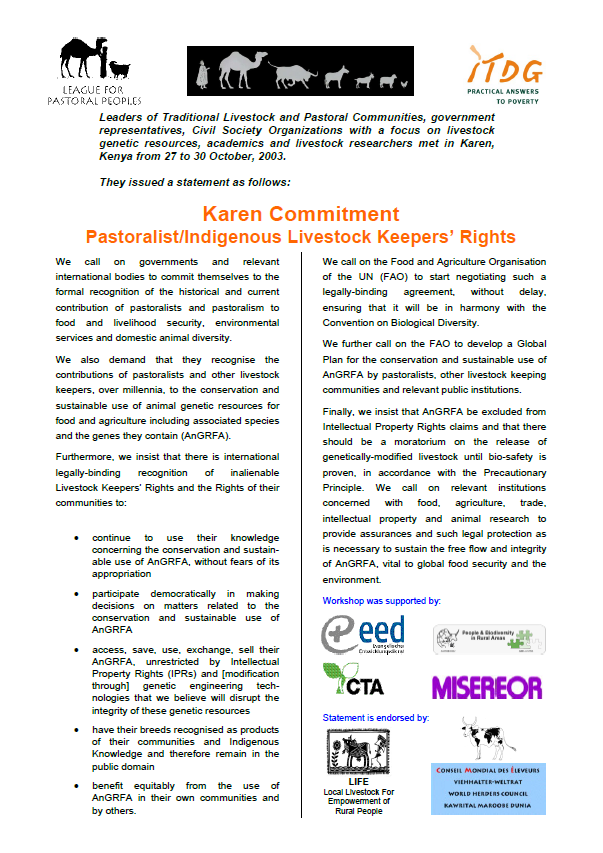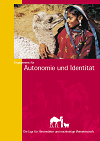Il est vital de protéger les éleveurs de bétail traditionnels
Four-page article in French: “It is vital to protect traditional livestock keepers.”
Depuis la nuit des temps, des sociétés traditionnelles d’éleveurs de bétail et de volaille sélectionnent* des races d’animaux dans toutes sortes d’environnements dans le monde. Mais la globalisation et l’industrialisation de l’élevage menacent de plus en plus la richesse génétique présente dans les 6000 races d’animaux ainsi sélectionnées. Sauver les peuples pasteurs qui maintiennent ce trésor en vie passe par la reconnaissance et la juste rétribution de leur travail irremplaçable de sélection

Download document


